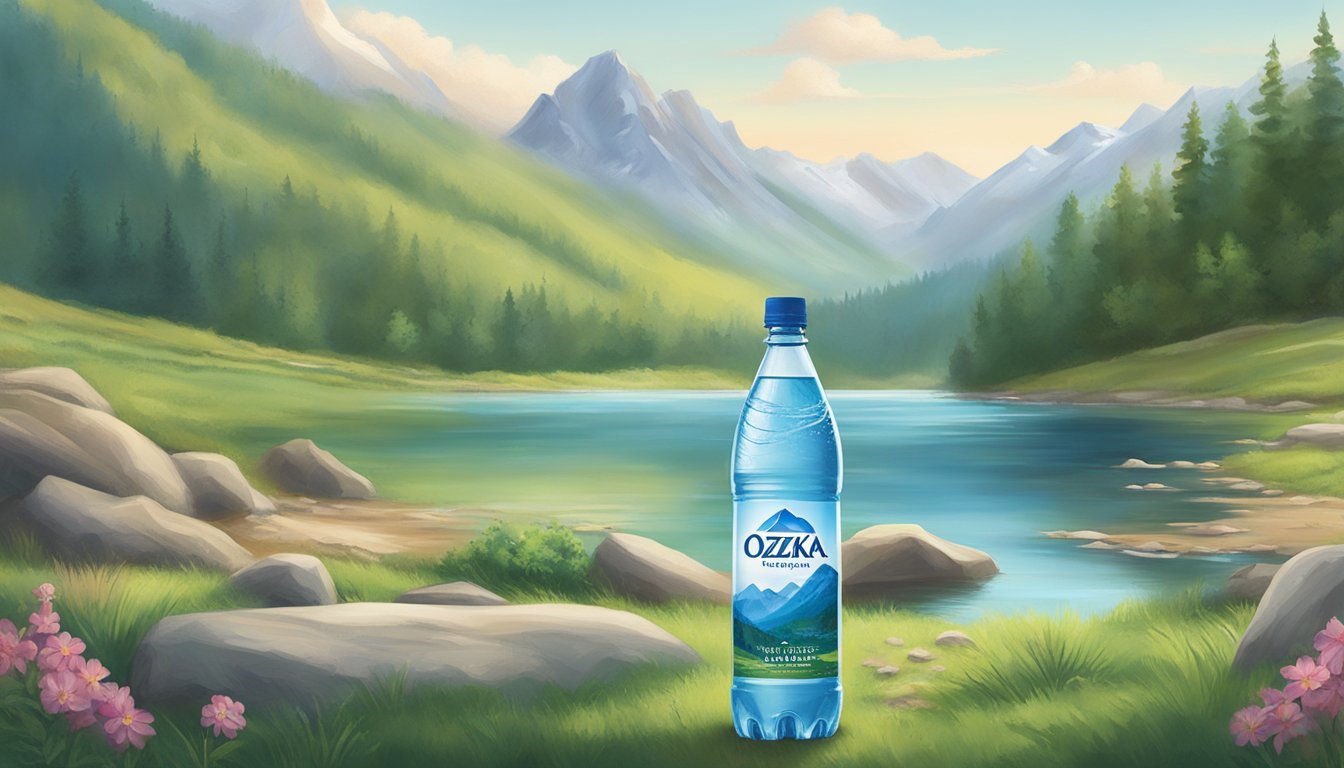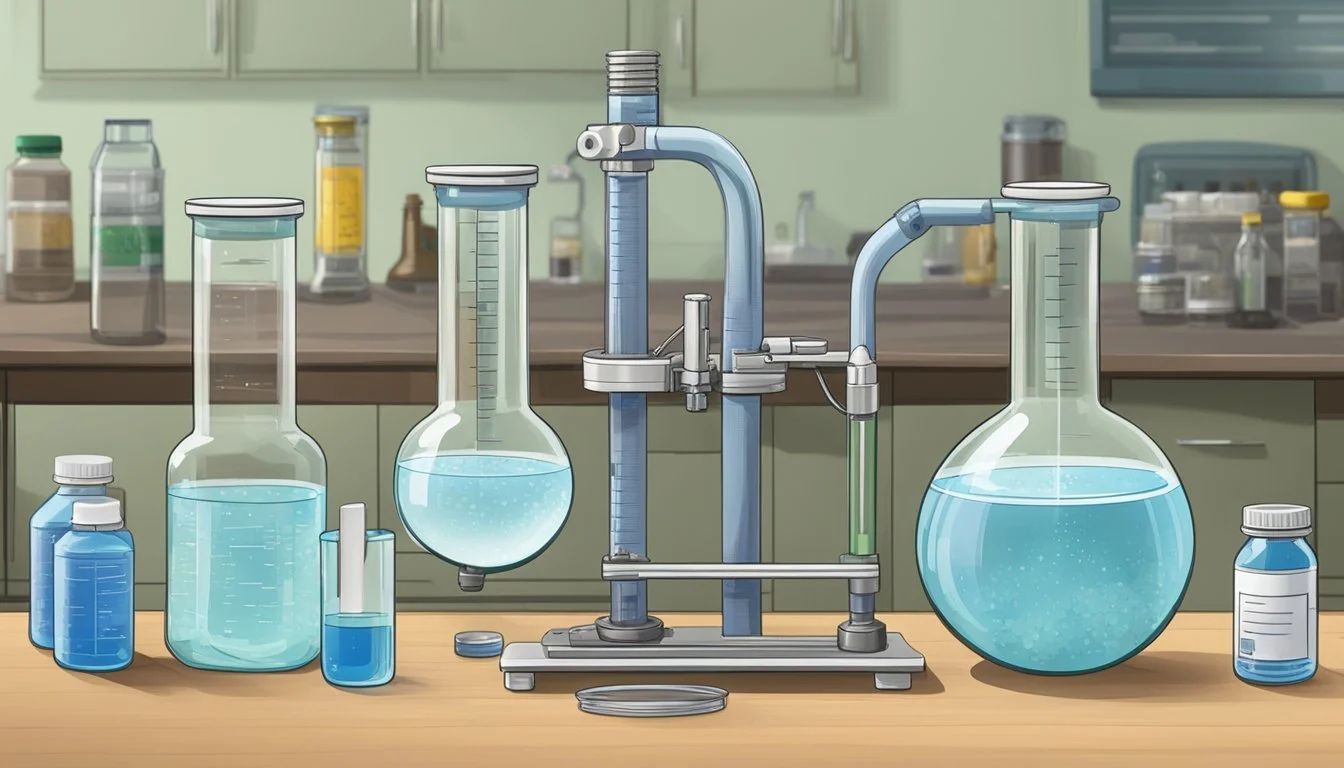Mountain Valley Spring Water vs. Ozarka
Unveiling the Superior Bottled Water Choice
In the realm of bottled water, consumers are faced with an array of choices that can either quench their thirst or leave them wanting. Among these options, Mountain Valley Spring Water and Ozarka stand out as prominent brands that have established a loyal customer base. Originating from distinctly different sources, each brand offers a unique taste and mineral composition that appeals to various palates.
Mountain Valley Spring Water is revered for its historical richness and a crisp taste that is attributed to the natural spring from which it is sourced. Dating back to 1871, the brand has gained a reputation for its balanced pH, as well as the presence of calcium, magnesium, and potassium, which contributes to its overall appeal and purported health benefits. Notably, the water is directly bottled at the source in the Ouachita Mountains of Arkansas, which allows it to retain its natural purity.
On the other hand, Ozarka, sourced from Texas, boasts a regional flair and is a go-to choice for many who prefer a water brand that is closer to home. It delivers a taste that resonates with its local consumers and is readily available, making it a convenient option for daily hydration needs. Understanding the subtle differences and the ethos behind these two brands is essential for those looking to make an informed decision about their drinking water preferences.
Background on Bottled Water
Bottled water, a daily essential for many, varies in type and source, is governed by a complex industry, and carries significant environmental considerations along with health and safety standards that are critical for consumers to understand.
Types of Bottled Water
There are several types of bottled water marketed to consumers. Spring water comes from underground sources and must flow naturally to the earth's surface or be extracted through a borehole. Mineral water is defined by its constant level and relative proportions of trace minerals like magnesium and calcium. Alkaline water has a higher pH level compared to regular drinking water and often contains alkaline minerals. Distilled water is water that has been boiled into vapor and condensed back into liquid in a separate container, removing minerals and impurities.
The Bottled Water Industry
The industry is overseen internationally by bodies such as the International Bottled Water Association (IBWA), which upholds standards among numerous water brands. These brands range from local producers to global entities, with some offering niche products like naturally alkaline or artesian waters. Market competition often centers on the purity, taste, and mineral content of the water, with many brands touting unique selling points to stand out.
Environmental Impact
The production and disposal of plastic bottles is a significant environmental concern. The industry is responding to public demand for more sustainable practices by introducing carbon neutral initiatives and shifting toward aluminum cans or biodegradable materials. However, the environmental footprint of bottled water remains a contentious issue, with distribution contributing to carbon emissions and discarded plastic adding to global pollution.
Health and Safety Standards
Bottled water is regulated to ensure it is safe to drink. In the United States, the Environmental Protection Agency (EPA) sets standards for tap water, while the Food and Drug Administration oversees bottled water. Internationally, guidelines by the World Health Organization (WHO) influence regulatory frameworks. Regular testing for contaminants is mandatory to minimize health risks, with reputable brands ensuring compliance to provide safe, clean water to consumers.
Comparing Mountain Valley and Ozarka
Discovering the contrasts between Mountain Valley Spring Water and Ozarka highlights the unique journey and attributes of these renowned bottled water brands. From their illustrious historic footprints to the natural quality and mineral composition of their water, each brand offers a distinct flavor profile that reflects its source.
Brand History
Mountain Valley Spring Water boasts a storied legacy, with its roots going back to 1871. This historic water brand has graced the tables of several U.S. Presidents, including Eisenhower, and was a preferred choice of celebrities like Elvis Presley. In contrast, Ozarka, starting its journey in 1905, also has a long history but with a more regional focus on Texas and the surrounding areas.
Source and Water Quality
Mountain Valley sources its natural spring water from the Ouachita Mountains in Arkansas. The water filters slowly through volcanic rock, enriching it with minerals. Ozarka's water, on the other hand, comes from multiple springs in Texas and is also considered groundwater. Both brands adhere to strict purification processes to ensure the water quality remains high.
Mineral Content and pH Levels
The mineral-rich waters of both brands contribute to their overall quality. Mountain Valley contains calcium, magnesium, and potassium, as well as bicarbonate which balances pH levels. Ozarka's mineral content is also notable and can vary due to its different sources. Both brands typically maintain a pH level that hovers around neutrality, though exact figures can vary slightly.
Taste Profile
Mountain Valley is often described as having a crisp taste due to its unique mineral blend and purity. Ozarka is praised for its refreshingly clean taste, which reflects the quality of the local springs from which it's sourced. The distinction in water taste can often be attributed to the differing mineral contents and the water's journey through natural filters.
Specifics of Mountain Valley Spring Water
Mountain Valley Spring Water has established a name for itself in the bottled water industry with its distinct characteristics. This section outlines the brand's unique selling points, health benefits, and the variety of products available.
Unique Selling Propositions
Mountain Valley Spring Water is sourced from a single, protected spring in Garland County, Arkansas, and boasts a natural filtration process through the earth's layers, adding vital minerals. Packaging their products in glass bottles, they offer a purer taste and a commitment to sustainability with BPA-free solution that aims to reduce plastic waste.
Source: Garland County, Arkansas
Packaging: Glass bottles, BPA-free
Health Benefits
The natural minerals found in Mountain Valley Spring Water, such as calcium, magnesium, and potassium, contribute to its electrolyte content, which is beneficial for overall hydration and health. Anecdotal evidence suggests that the natural alkalinity and mineral content may provide some comfort to those with arthritis, though such claims are not scientifically substantiated.
Electrolytes: Calcium, Magnesium, Potassium
Claims: May aid in health concerns like arthritis (not scientifically proven)
Product Range
Mountain Valley Spring Water provides an array of products, including their flagship spring water, sparkling water, and a flavored water line. Their spring water is available in various sizes, from small personal bottles to large multi-gallon sizes suited for both personal and office use.
Spring Water: Available in multiple sizes
Sparkling and Flavored Water: Expanded product range for varied tastes
Specifics of Ozarka
Ozarka water is well-regarded for its local sourcing in Texas and its commitment to community impact, and it is offered in a range of options to suit different preferences. The brand's focus on packaging and accessibility reflects its effort to make its product convenient for a wide customer base.
Local Sourcing and Community Impact
Ozarka Spring Water sources its water from three distinct springs located in the heart of east Texas—Rohler, Moffit, and Piney Woods Springs. The community benefits from Ozarka’s commitment to local sourcing, fostering employment, and supporting the regional economy. Ozarka emphasizes the natural quality of its water and maintains that their sources give their bottled waters a unique mineral composition and taste that is reflective of the Texas landscape.
Variety and Availability
Ozarka offers an array of bottled waters to cater to diverse tastes, including:
Natural Spring Water: Collected from Texas springs with a pH range of 5.4 to 7.1.
Sparkling Water: A bubbly alternative infused with natural flavors.
Distilled Water: Purified water ideal for use in appliances and for those who prefer no mineral taste.
The brand ensures that these options are widely available across various stores in Texas, making Ozarka a familiar and reliable choice for hydration among Texas communities.
Packaging and Accessibility
Ozarka's bottled waters are packaged in plastic bottles that range in size from small, portable bottles to larger, multi-gallon containers. Despite the environmental concerns with using plastic bottles, the brand ensures that its single-serve bottles are 100% recyclable and made with a reduced amount of plastic to mitigate environmental impact. They have also phased out the use of BPA in their bottles, prioritizing consumer health and safety. As a result, they strive to provide accessible hydration solutions while being mindful of packaging materials.
Consumer Considerations
When comparing Mountain Valley Spring Water to Ozarka, consumers weigh various considerations ranging from packaging materials to cost and how the product fits into their lifestyle.
Bottle Material and Design
Mountain Valley Spring Water traditionally offers products in glass bottles, which are BPA-free and believed by many to help maintain the purity and taste of the water. Glass packaging typically appeals to eco-conscious consumers and those concerned about potential chemical leaching from plastic. However, glass bottles are heavier and may not be as convenient for on-the-go use as plastic bottles.
Ozarka, on the other hand, primarily utilizes plastic bottles for its water products. While plastic is lightweight and more convenient for activities like hiking or fitness, there are health and environmental concerns associated with plastic use. Ozarka ensures that its plastic bottles are BPA-free, lessening health concerns, but the environmental impact remains a discussion point for environmentally minded consumers.
Cost Factors
Price: Mountain Valley Spring Water is often priced at a premium due to its glass packaging and the perception of higher quality water. Consequently, it may not be the first choice for cost-conscious consumers.
Affordability: Ozarka, provided in plastic containers, tends to be more affordable and is a budget-friendly option for buyers looking for value in their purchase.
Lifestyle and Usage
Consumers consider their lifestyle and usage when choosing between Mountain Valley and Ozarka.
For those involved in health and fitness activities, the convenience of a lightweight plastic bottle might be more practical. Ozarka water is thus more often seen in gyms and during outdoor sports.
Alternatively, individuals seeking a more luxurious experience or who prioritize eco-friendly products might opt for Mountain Valley's glass bottles for home use or as a refreshment in high-end establishments.
In summary, consumer choices between Mountain Valley and Ozarka bottled water vary based on specific needs related to bottle material and design, cost considerations, and the lifestyle and usage of the individual.
Environmental Responsibility
When comparing Mountain Valley Spring Water and Ozarka in terms of environmental responsibility, their sustainability initiatives and waste reduction strategies stand out. These factors play a critical role in determining the overall environmental impact of each brand.
Sustainability Practices
Mountain Valley Spring Water takes pride in drawing water from a natural spring, which allows them to offer clean drinking water with minimal environmental disturbance. Their commitment extends to maintaining a protected watershed and environmentally friendly bottling processes. The company touts its use of glass bottles, which are 100% recyclable and can be reused many times over, reducing the demand for single-use plastics.
On the other hand, Ozarka, sourced from multiple springs in Texas, emphasizes its local sourcing as a key to reducing the carbon footprint associated with transportation. Ozarka has moved towards more eco-friendly practices but still primarily relies on plastic bottles. However, they offer some products in recyclable plastic and have plans to increase their use of recycled plastic in the future.
Recycling and Waste Reduction
Both Mountain Valley Spring Water and Ozarka have initiatives focused on waste reduction.
Mountain Valley Spring Water
Utilizes glass bottles for water, which reduces the need for plastic bottle production.
Encourages recycling, aiming to minimize waste in landfills.
Ozarka
Manufactures bottles that are 100% recyclable.
Engages in efforts to support community recycling initiatives.
Although both companies strive to ensure their packaging is recyclable, Mountain Valley's use of glass bottles significantly reduces the lifecycle environmental impact compared to Ozarka's plastic bottles. Additionally, there is an ongoing debate regarding the environmental footprint of sourcing water, where the impact of bottling and transporting water from natural springs versus municipal sources is considered. Each brand's efforts toward achieving carbon neutrality would be an important aspect of their environmental responsibility, yet specifics on their carbon offsets or neutral certification were not detailed in the search results provided. Likewise, the extent to which aluminum cans are utilized by each company is not specified, which could influence their stance on sustainability given aluminum's high recyclability rate.
Scientific Analysis and Expert Opinions
In the comparison of Mountain Valley Spring Water and Ozarka, scientific analysis and expert opinions weigh heavily on factors such as chemical composition and independent testing results. These criteria are critical in evaluating the quality of bottled water.
Chemical Composition
Mountain Valley Spring Water is sourced from Garland County, Arkansas, and is known for its naturally high mineral content, including calcium, magnesium, and potassium. The balance of these minerals contributes to the characteristic taste and potential health benefits of the water. According to testing results, Mountain Valley water typically has a higher total dissolved solids (TDS) content, indicative of its rich mineralization.
Mountain Valley Spring Water Mineral Composition:
Calcium: Essential for bone health.
Magnesium: Promotes enzyme function.
Potassium: Crucial for muscle function.
Ozarka, on the other hand, sourced from multiple springs in Texas, also prides itself on a natural mineral content that adds to its flavor profile. While the mineral composition may vary slightly depending on the source spring, Ozarka water is still known to contain beneficial minerals, although at different levels compared to Mountain Valley.
Ozarka Water Mineral Composition:
Calcium: Present in notable amounts.
Magnesium: Found in moderate quantities.
Sodium: Sometimes higher, affecting taste.
Independent Testing Results
Independent testing offers unbiased results regarding water quality and the presence of any contaminants or heavy metals. The pH level, a measure of acidity or alkalinity, is also examined in these tests. For example, test results have shown that Mountain Valley sparkling water is acidic due to its orange color during pH testing.
Advanced testing procedures help indicate the presence of:
Total Dissolved Solids (TDS): Indicates mineral content.
Heavy Metals and Contaminants: Ensure safety and compliance.
Both Mountain Valley Spring Water and Ozarka are rigorously tested to meet safety standards and to ensure they are free from harmful levels of contaminants. Expert analysis typically reviews these test results to validate the purity and safety of the bottled water for consumer consumption.
Comparison of Alternatives
When debating between Mountain Valley Spring Water and Ozarka for superior bottled water, it's critical to examine not only these two brands but also other market alternatives and the enduring debate of tap versus bottled water.
Other Bottled Water Brands
In the vast bottled water market, several key players stand out for their unique qualities:
Evian: Known for its neutral pH balance and electrolyte content originating from the French Alps.
Fiji Water: Sourced from an underground aquifer in Fiji, it is recognized for its soft taste and high silica content.
Essentia: This brand touts its ionized alkaline water with a pH of 9.5, catering to those seeking alkalinity in their water choice.
Voss: Hailing from Norway, Voss is appreciated for its minimalistic design and artesian source.
Acqua Panna: Offers natural spring water from Tuscany and is often associated with fine dining experiences.
Smartwater: Vapor-distilled, with added electrolytes for taste, Smartwater has become synonymous with a clean and crisp drinking experience.
For consumers preferring sparkling water, Perrier and San Pellegrino provide alternatives with their carbonated offerings, while La Croix remains a popular choice for flavored sparkling water without added sugars.
When considering brands like Poland Spring and Deer Park, regional availability may influence consumer choice, as these brands often source water from specific geographic locations within the United States. On the other hand, Icelandic Glacial and Eternal Water boast of exotic origins and marketing around the purity of their respective sources.
Tap Water Versus Bottled Water
Comparing bottled water to tap water involves considering several factors:
Purity: Bottled water, such as Mountain Valley Spring Water and Ozarka, often claim higher standards of purity. Tap water, however, is subject to stringent EPA regulations and may also be a safe and clean drinking water source.
Taste: Some consumers prefer bottled water for its taste profile, which can be influenced by the water's source and mineral content. Tap water's taste can vary depending on local treatment processes and plumbing systems.
Environmental Impact: Bottled waters such as Evian and Fiji Water often face scrutiny for their environmental impact due to their packaging and long-distance shipping. Tap water has a lower carbon footprint but might require additional filtering at the point of use for some consumers.
Cost: Tap water is generally more cost-effective than bottled options like Core Hydration or Ethos Water, which can come with a premium price tag.
Consumers must weigh these factors based on personal preferences, environmental concerns, and available resources to decide which water source best fits their needs.
Conclusion
When comparing Mountain Valley Spring Water with Ozarka, consumers should consider several factors. Mountain Valley Spring Water boasts a naturally occurring mineral content and maintains a pH balance between 7.3 to 7.7, often sought by those prioritizing alkalinity in their water. This brand has established itself as a premium option and has received accolades for its taste and quality.
Ozarka, sourced from Texas springs, is commonly known for its regional flavor profile and affordability. It's a practical choice for everyday hydration needs, often preferred by consumers looking for a consistent and cost-effective bottled water option.
Tips for Choosing Bottled Water:
Review mineral content and source.
Consider the environmental impact of packaging.
Assess the value for price paid.
Comparing Companies:
Mountain Valley Spring Water is one of the oldest water bottling companies in the United States.
Ozarka is well-established and offers region-specific spring water.
Here is a quick comparison:
Feature Mountain Valley Ozarka Source Natural spring Texas springs pH Level 7.3 - 7.7 Varies with source Mineral Content Naturally mineralized Contains natural minerals Price Premium Economical Environmental Commitment Active efforts in place Standard recycling policies
Ultimately, the choice between Mountain Valley and Ozarka boils down to personal preference, taste, and what aspects of water are most important to the user – be it mineral content, pH level, environmental impact, or cost. Both companies offer quality choices, and the best bottled water is the one that fits the individual's criteria for purity, taste, and value.







